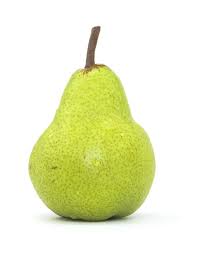记忆方法
将“pear”与“apple”对比记忆,想象一个比苹果稍尖的版本,即形状像苹果但是有尖头的梨。这种方法通过视觉形象对比来帮助记忆单词的形状和含义。
以上内容由AI生成, 仅供参考和借鉴
中文词源
pear 梨
来自古英语pere,来自拉丁语pira,梨,pirum的复数形式。
英语词源
- pear (n.)
- Old English pere, peru "pear," common West Germanic (Middle Dutch, Middle Low German pere, Old High German pira, bira, Dutch peer), from Vulgar Latin *pera, variant of Latin pira, plural (taken for fem. singular) of pirum "pear," a loan word from an unknown source. It likely shares an origin with Greek apion "pear," apios "pear tree."
权威例句
- 1. In gardens, cankers are most prominent on apples and pear trees.
- 花园里,苹果树和梨树患枯枝病最明显。
- 2. Sweeten dishes sparingly with honey, or con-centrated apple or pear juice.
- 加一点蜂蜜或浓缩苹果汁或梨汁,让菜带点甜味。
- 3. He feared his career had gone a bit pear-shaped.
- 他害怕自己的事业已经出了点儿问题。
- 4. Pear trees are grafted on quince rootstocks.
- 梨树被嫁接到榅的根茎上。
- 5. The pear is a delicious fruit and I like it very much.
- 梨是好吃的水果,我喜欢它.
